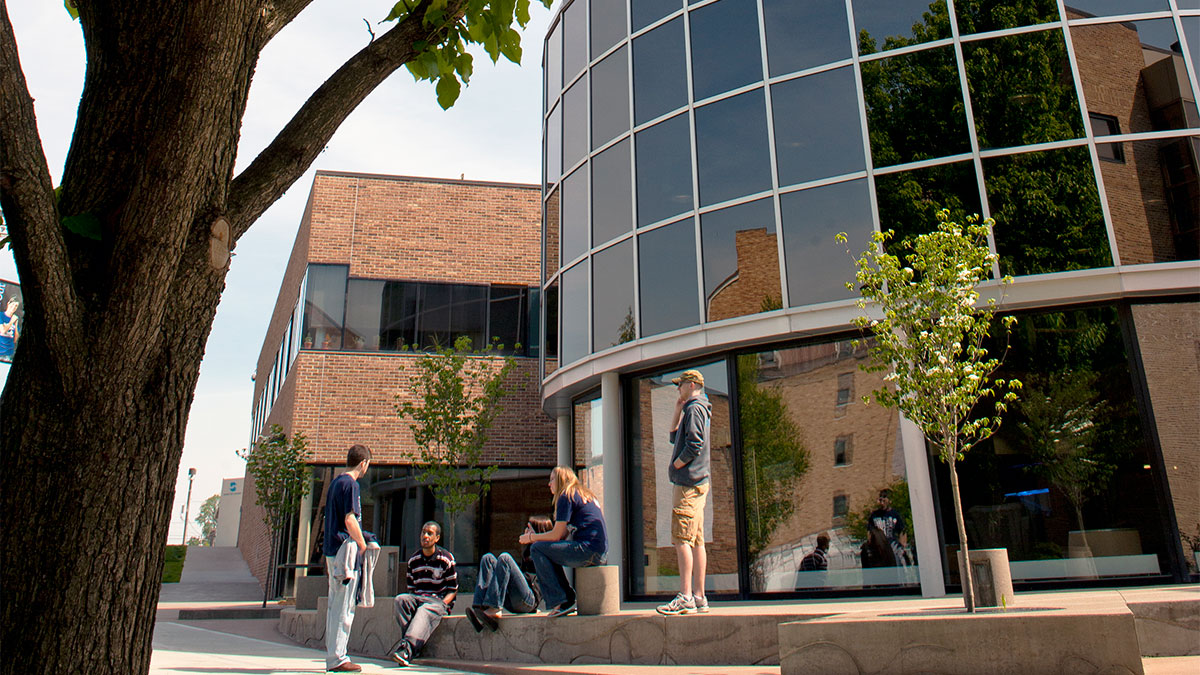Free Speech on Campus
Open debate and dialogue, sharing ideas and opinions, and free expression of differing views are all vital parts of education — and rights protected by the First Amendment.
Students, recognized student groups (and those seeking recognition), faculty, staff, and their invited guests enjoy expansive constitutional rights to free expression on campus. The University and its administration will not prohibit any member of the campus community from engaging in lawful, noncommercial free expression to the extent that it does not disrupt the functioning of the University.
These rights apply to verbal, written, and electronic means, including protests, speeches, literature distribution, and circulating petitions.

Expressive activity is permitted in outdoor areas of campus where the campus community is generally allowed, such as grassy areas, walkways, and common areas. The University does not limit free expression to any designated “free speech zones.”
